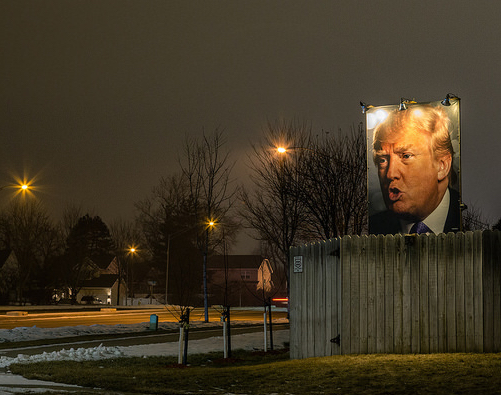Of the myriad outrages that define last week’s United States presidential election — namely, the elevation of scandal over policy, of demagoguery over competence, of unabashed sexism and racism and conspiratorial paranoia over reasoned debate — perhaps the most egregious is the fact that the winner of the popular vote will not be the one occupying the Oval Office.
Votes are still being counted. At the time of writing, however, Hillary Clinton appears set to win approximately two million votes more than President-elect Donald Trump, which gives lie to the all-too-common characterization of Trump supporters as a “silent majority” — a blatant numerical (not to mention auditory) falsehood if ever there was one.
The culprit responsible for this anti-democratic upset is an arcane body known as the Electoral College, which owing to Clinton’s landslide victories in California and New York and her razor-thin losses in Rust Belt swing states, cooked the books in favour of Trump.
Historically speaking, Republicans do not have anything like a permanent Electoral College advantage, but given the still painful memory of Bush v. Gore in 2000, as well as other splits between the electoral and popular votes that benefited the GOP in 1876 and 1888, don’t expect the party of Trump to see the light and embrace reform anytime soon.
The rules for changing the Constitution are practically insurmountable. To formally abolish the Electoral College, proponents would need the support of two-thirds of the members of each house of Congress plus three-quarters of the states. Only slightly less improbable is the workaround known as the National Popular Vote Interstate Compact, which would have signatory states pledge their electors to whichever presidential candidate wins the national popular vote.
The compact has so far been signed by ten states and the District of Columbia, which together represent 61 per cent of the 270 electoral votes needed for it to come into effect. The only problem is that all the states to have officially signed on are blue ones. The agreement will never reach the requisite 270 without swing states, which are understandably reluctant to give up their disproportionate power, or red states, which must be blisteringly aware, even after this month’s election, of the Republican Party’s growing popularity problem.
From 1992 onwards, there have been seven presidential elections. A Republican candidate has won the popular vote only once in those 24 years. As the GOP continues to alienate women, people of colour, Millennials and those with higher educations, it is becoming increasingly clear that the Electoral College represents their only shot at victory. Far from negating this trend, last week’s results further corroborate it.
So get used to hearing Republican operatives sing the praises of a system that distorts election results and subverts the will of the people. Get used to hearing them profess their solidarity with smaller, more rural states — currently over-represented in the Electoral College — against the large urban centres that threaten to overpower them come election time. As if people aren’t just people no matter where they live. As if voters should not all be counted equally.
Meanwhile, the rest of the country, which according to one recent survey wants to eliminate this 18th century anomaly by a margin of 55 per cent to 27 per cent, will go on echoing the luminary who famously described the Electoral College as “a disaster for a democracy.”
That luminary? Donald J. Trump.
Like this article? rabble is reader-supported journalism.




